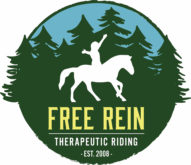Do You Believe In Magic?
Brain surgeon Allan Hamilton does. In his book, Zen Mind, Zen Horse, Dr. Hamilton writes: “Believe me when I tell you that working with horses can be exciting—practically intoxicating at times—because you are learning to play with magic.”
The physiological benefits of riding have been known for over three thousand years. And history has long recorded that some of the most influential leaders—Buddha, Alexander the Great, Catherine the Great, George Washington, Ronald Reagan—were accomplished in ways of the horse.
Today, equine therapists, and neuroscientists like Dr. Hamilton, understand how working with horses can actually improve human brain function and enhance lives. In clinical terms, equine therapists constantly witness “…the transfer of learning outcomes in an equine environment to daily living skills.”
Horses help us build muscle, improve our joints, enhance our balance and coordination, teach us courage and calmness, strengthen our self-confidence and self-image. They accelerate our learning, concentration and awareness. They motivate us to take responsibility, teach us the art of quiet assertiveness, show us how to set and achieve goals. Most mysterious of all, horses give us a profound sense of inner peace and connection with the great Mystery that is life.
What would happen if we methodically taught “horse sense” the way we teach reading, writing and arithmetic? Some scholars suggest that it would so transform the world that the Renaissance would pale in comparison.
Only since the recent explosive discoveries of neurobiology have we been able to scientifically explain the power of horses to help us realize our highest human potential, yielding the ultimate out-of-the-box thinking.
No wonder horses are so effective in helping at-risk youth, seniors struggling with dementia, folks of all ages coping with maladies including autism, Parkinson’s Disease, Multiple Sclerosis and Cerebral Palsy to name just a few. Such is the healing power of horses that they are even more effective than drugs and psychotherapy in helping rape victims recover from their trauma and in healing soldiers from the soul wound of war.
